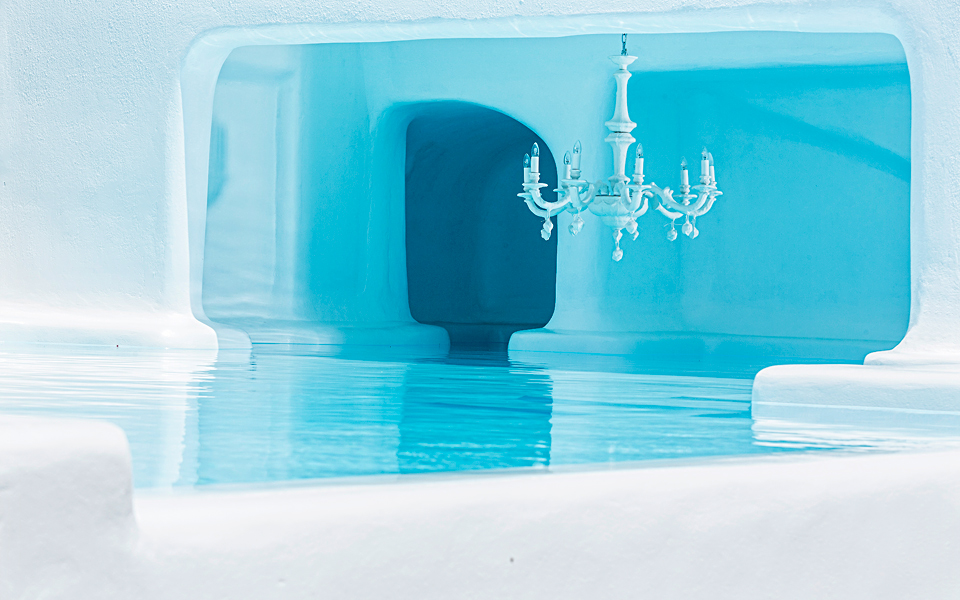With one look around his headquarters in the upscale Athens neighborhood of Kolonaki, you can learn a lot about Panos Petridis. Everything in the townhouse in which his office is located (and which used to be a restaurant) belies his touch; the layout, the colors on the walls and floor, the furnishings and decorations all combine functionality with high design. “Is that always the goal?” I ask the distinguished architect and interior designer. “Yes, although sometimes one needs to make small sacrifices. It is better, for example, to have a nice carpet that takes a little more effort to clean but which gives you great pleasure to look at and walk on,” he responds.
Petridis was born into a typical middle-class family in Thessaloniki to parents who were both entrepreneurs. From a young age he was obsessed with fixing things. He would find discarded pieces of furniture on the street and bring them home to restore, giving them a new lease on life. “And I still do that today,” he says. He purchased his first architecture magazine when he was 12, at a time when his peers were reading superhero comic books.

“I don’t know why. Perhaps I was drawn to the glossy photographs. But I became hooked.” He went on to study architecture and interior design and got his first jobs in Thessaloniki: a small café to begin with, lots of houses and then more work with restaurants, cafes and bars. He subsequently became drawn to set design. For a number of seasons he collaborated with the legendary Greek pop singer, Anna Vissi. “It was the era of massive shows which required months of preparation. For me at that age it was great. I enjoyed it. Today I don’t know if I would do it with the same enthusiasm.”
Having since moved to Athens, in recent years he has been active chiefly in the world of hotels, which has given his creativity and talent ample room to shine. “I detest hotels that have inhuman proportions, such as those in Dubai. In contrast, I adore boutique hotels like those you find in Le Marais in Paris.”
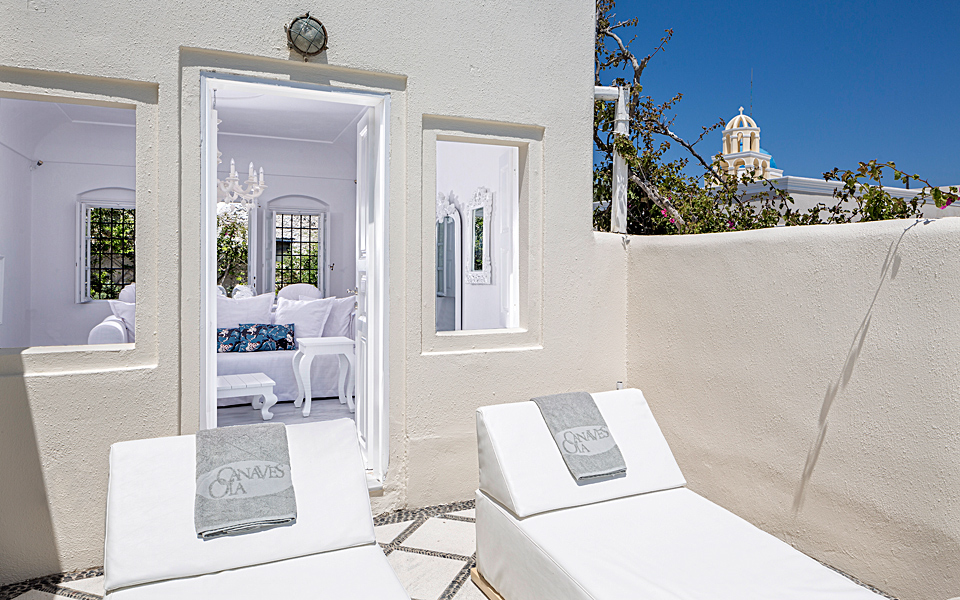
A fruit of this love for ‘human’ hotels was his collaboration with the luxury resort Canaves Oia Santorini which was recently voted the top hotel in Europe and 34th in the world by the readers of Conde Nast Traveller. The complex consists of the Canaves Hotel (18 suites), the Canaves Suites (26 suites), the three-bedroomed Canaves Villa which can host up to eight guests and a spa where guests can enjoy treatments with spectacular views of Santorini’s caldera.
White dominates in Petridis’ spaces, “To help the guest relax and empty their mind of every stress.” This understated aesthetic is maintained with all of the furnishings and decorative pieces. “The Cyclades – and even more so Santorini – are a unique place, a different Greece. You cannot be excessive with the décor. You need to choose pieces that are neutral, but that are also very high quality, and not to compete with the landscape. Because if you do, you will lose.” Of equally high caliber was his work at the Racconto Boutique Hotel in Parga. He stresses. “It is not only only the location that plays a part in the success of a hotel. A good hotel adds, in its own right, value to the place where it is located.”
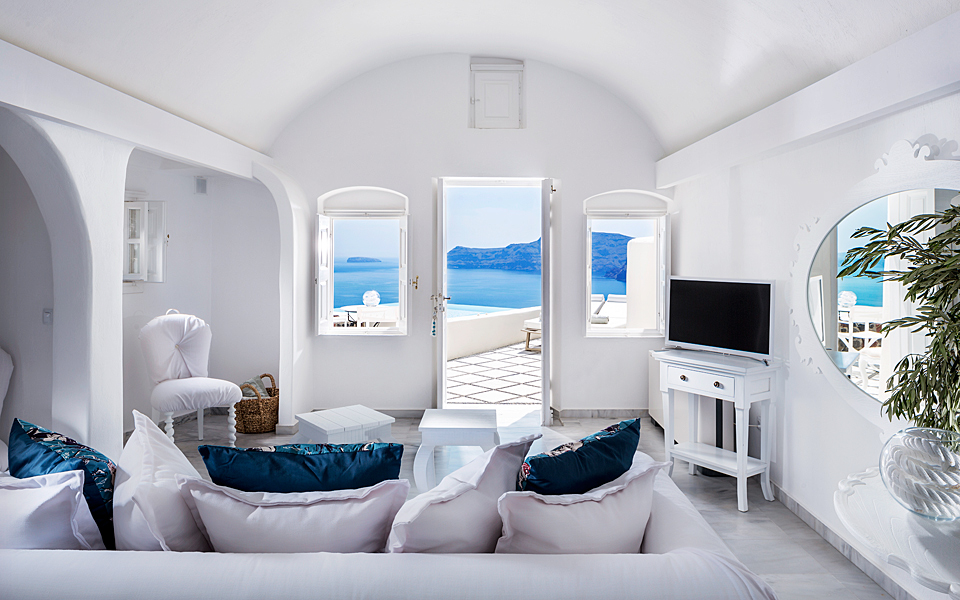
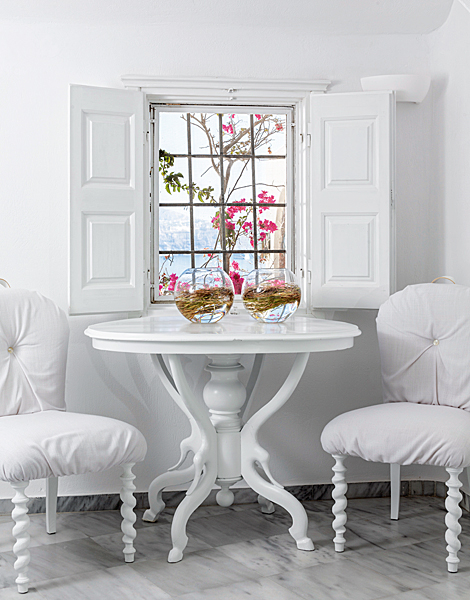
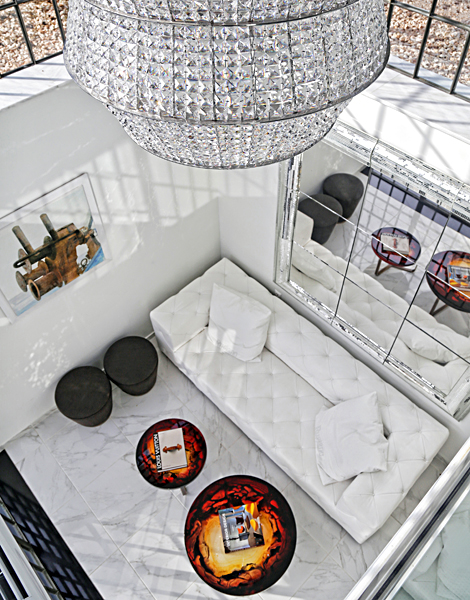
What would make him turn down a job? “My chemistry with the client. When my aesthetic is in conflict with theirs, I stop after the first meeting.” The word ‘aesthetic’ comes up again and again in our conversation. How does he define it? “For me, it is the search for uniqueness and quality without compromises. Far away from fashions, and in such a way that what you make is timeless and will improve with age.”
We discuss the impact of the crisis on his field. “With the crisis there was a reckoning. The flashes in the pan, those who had no real substance were lost. People began to appreciate more classical lines and better materials. Whoever decides to build a house wants to do it right, prudently and with a plan for the future. They want their money to be well-spent.”
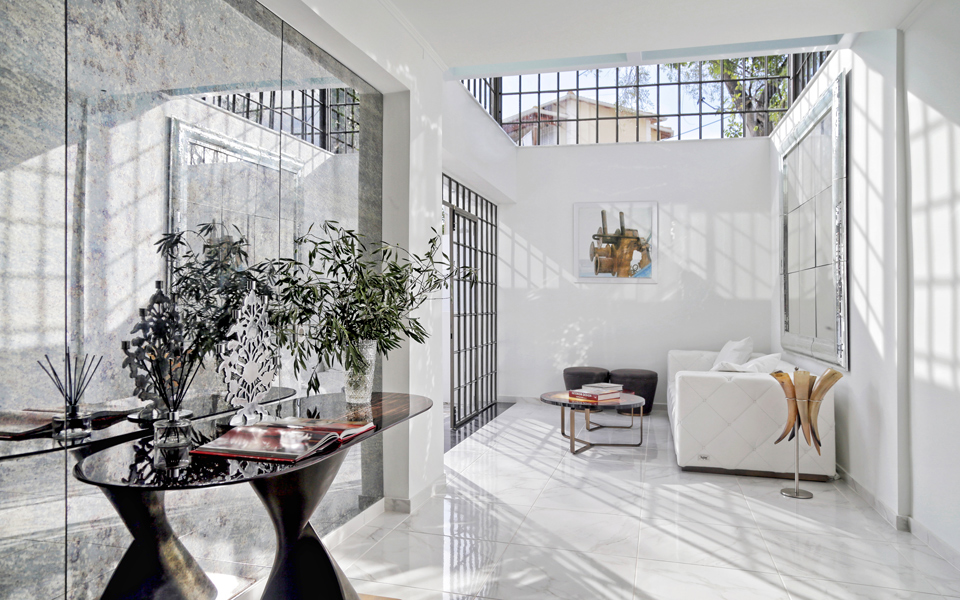
But is it only a question of money for us to transform our homes? “Of course not,” he quickly clarifies, “There are little secrets to giving new life to our spaces. Cleanliness and order because they help us to better relax, candles for a warm atmosphere, and lots of fresh flowers to remind us that life is beautiful! There is no need to pay a fortune. In any case, interior decoration is not a luxury, it is an internal need.” Before we bid each other farewell, I ask him what the greatest lesson is that he has learnt so far from life. “That I am still learning!” he says laughing, before sending me on my way.

